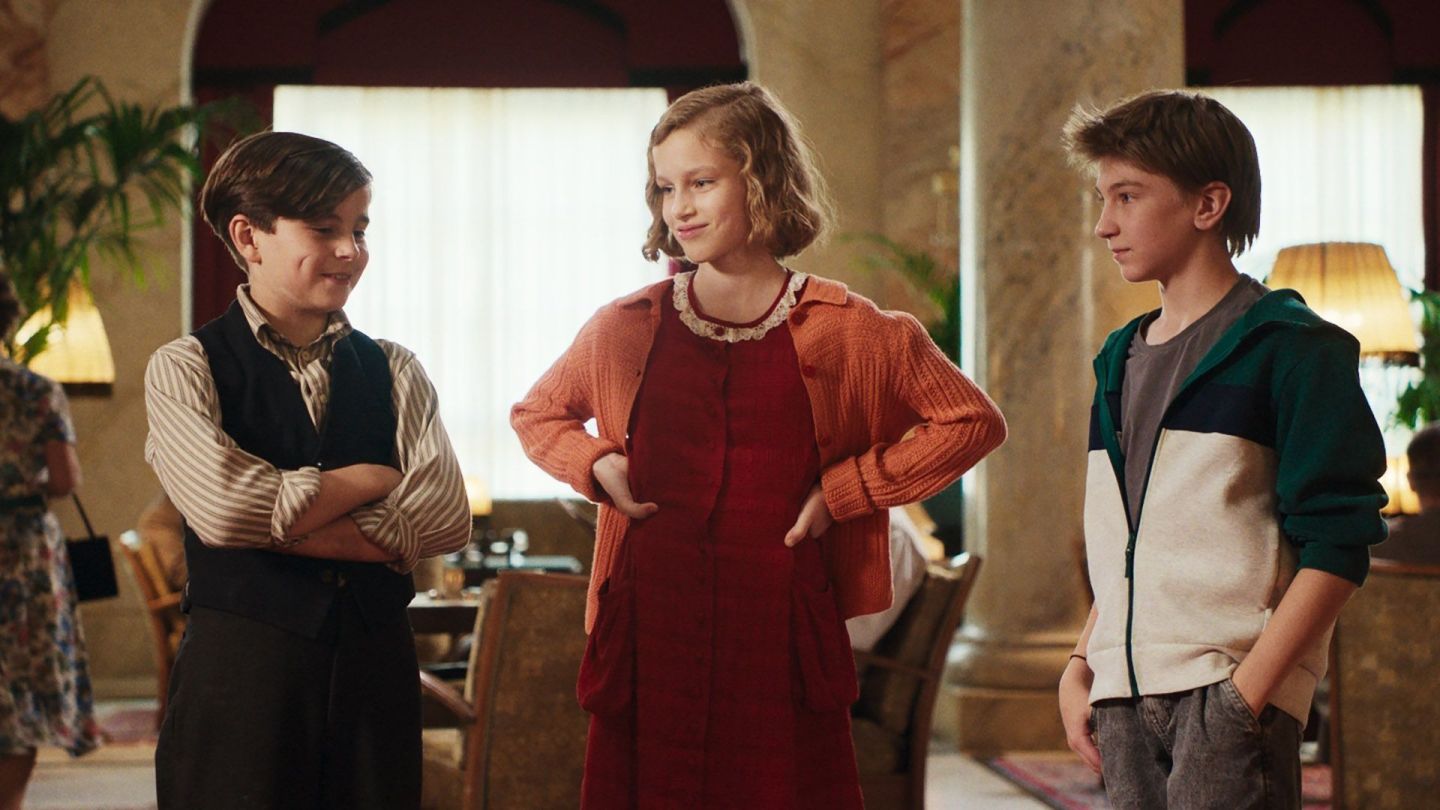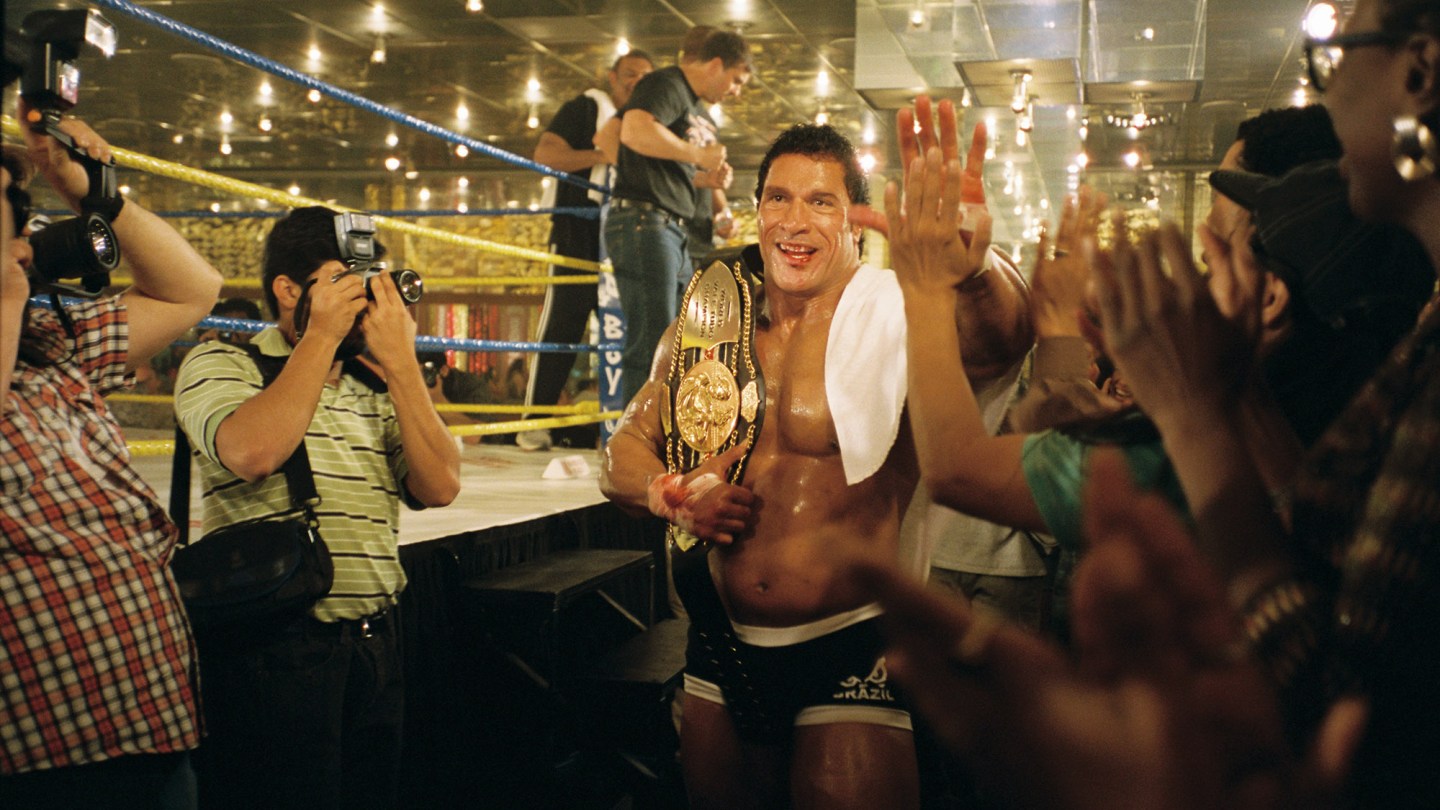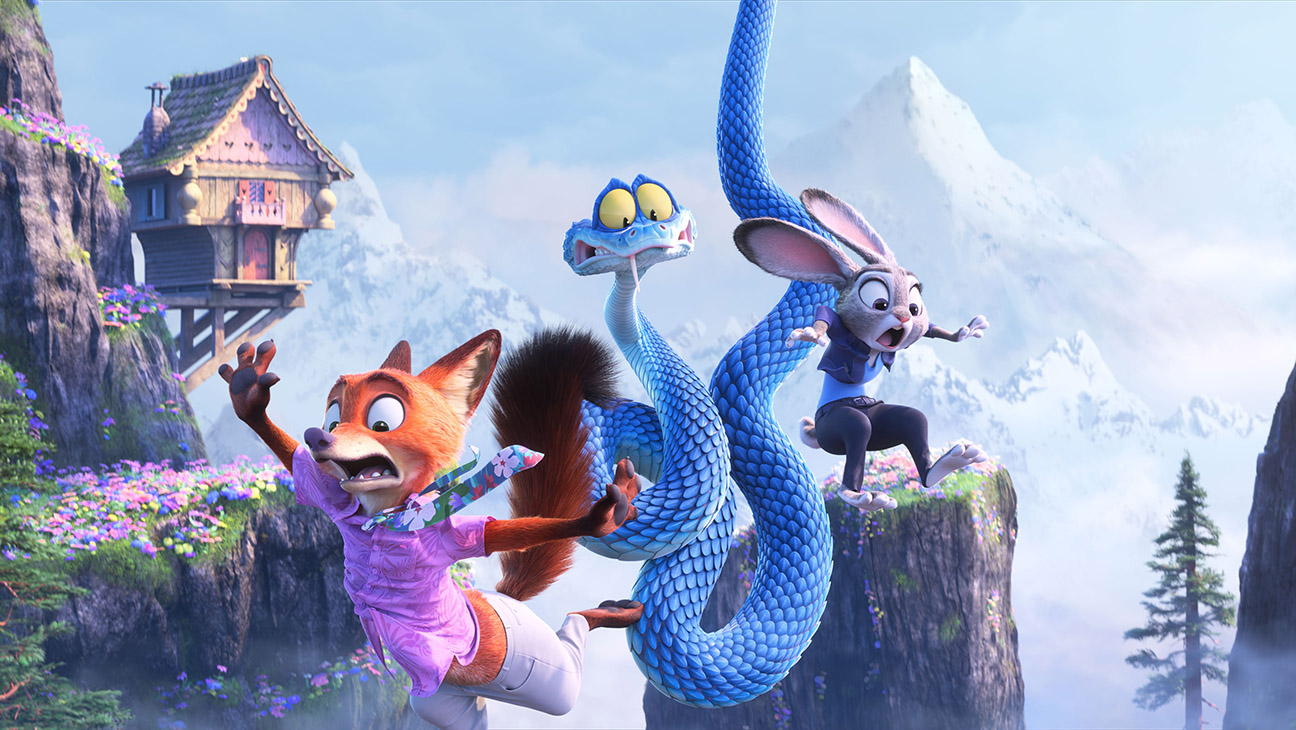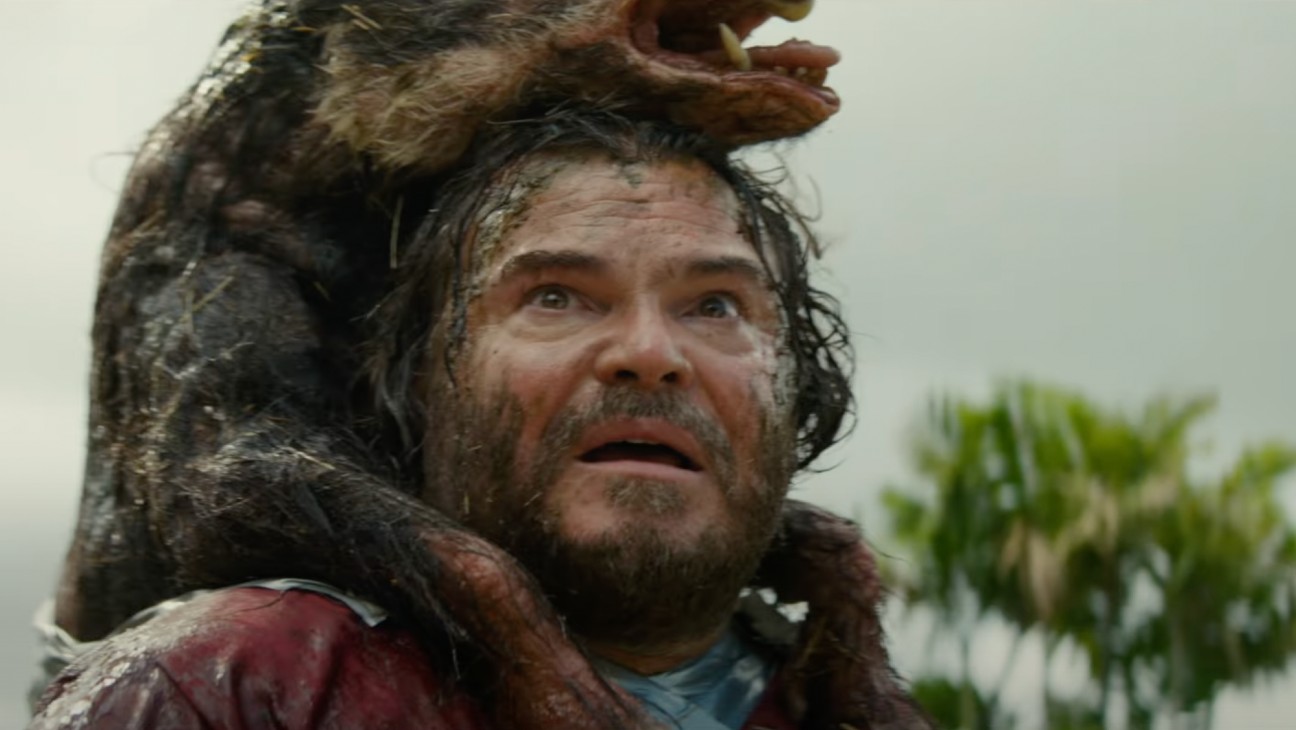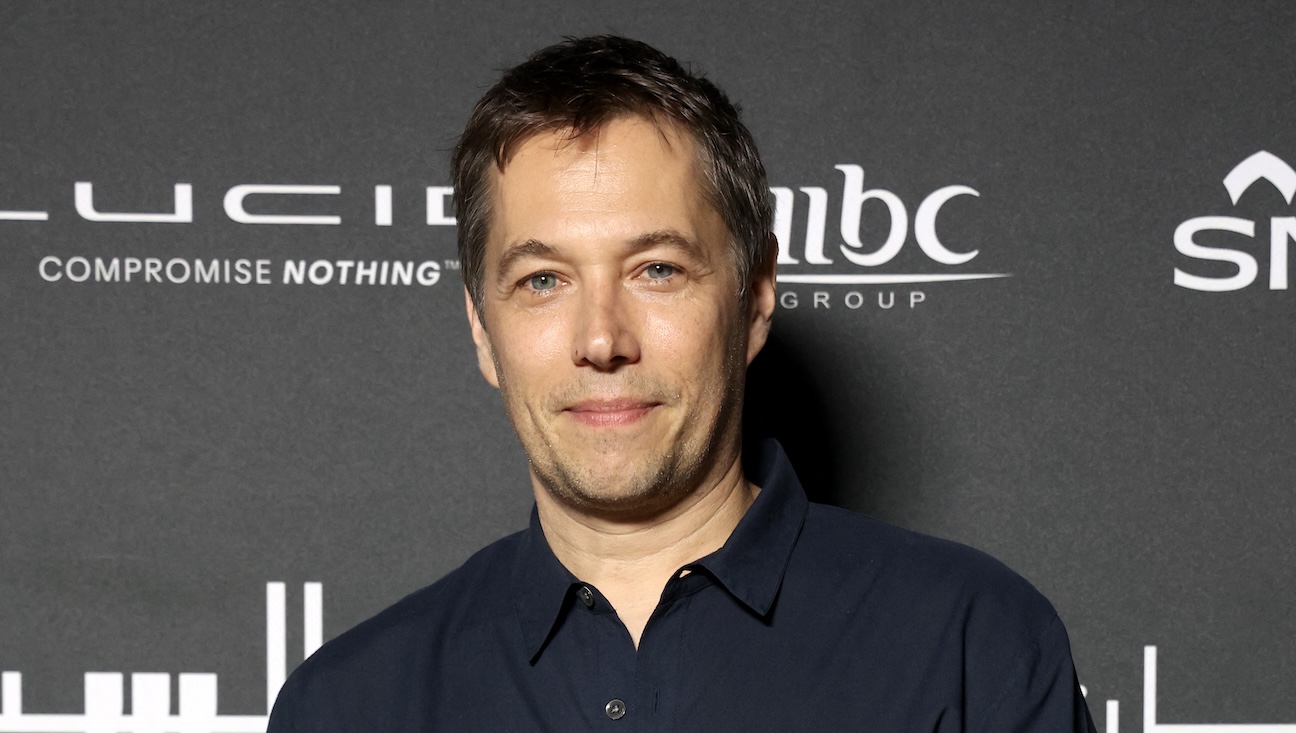On a hidden floor in an old hotel in the Alps, Nazi Germany is still alive in The Secret Floor (Das geheime Stockwerk), a time-travel adventure film for the whole family that wants to help children learn about the dark past. The German-Austrian-Luxembourgish co-production from Kevin Lee Film Germany, Amour Fou Vienna, Amour Fou Luxembourg and director/producer Norbert Lechner (The Wall Between Us), based on a script by Katrin Milhahn and Antonia Rothe-Liermann, stars Silas John, Annika Benzin, Maximilian Reinwald, Marie Jung, Maximilian Simonischek, and Tobias Resch. The Playmaker is handling sales.
“When 12-year-old Karli moves to an old hotel in the Alps, he discovers an elevator that harbors a secret – it’s a magical time portal that transports him back to 1938!” reads a synopsis. “There, he befriends Hannah, a spirited Jewish girl, and Georg, a shoeshine boy. But when Georg is falsely accused of stealing, the children must solve a mystery case hidden within the hotel’s walls, all while the shadow of Nazi Germany begins to grow around them.”
The movie, shot at two former hotels in Austria and in Luxembourg, has played the Zlín Film Festival in Czechia, where it won the children’s jury award, Germany’s Goldener Spatz, where it earned honors for the best feature film and best actor, and the Giffoni Film Festival, where it won the Tommy Hilfiger Special Award.
Check out a trailer for the film here.
Ahead of its screening at the 29th edition of the Tallinn Black Nights Film Festival (PÖFF) on Nov. 9, Lechner talked to THR about bringing The Secret Floor to life, how the movie came about, and how the ghosts of the Nazi past reared their heads at a recent festival.
Rothe-Liermann grew up in the GDR. “In school, the eight-year-old children were shown a film about Auschwitz, and she was really shocked and couldn’t sleep for months,” Lechner recalled about the genesis of the idea. “As an adult and a script writer, she thought about how we can tell children about this time without traumatizing them? We had already made two films together. And when she came up with this idea, I loved it from the first moment.”
A Michael J. Fox classic was part of the research. “We looked at time travel films, watching Back to the Future several times, to see how the story was built,” the director told THR. “And we did a lot of research and talked to scientists and historians to get everything right. And then we had the idea for a little criminal investigation to have a more adventurous part, together with the real, historical part. We had a lot of drafts, but it came together.”
Lechner and his collaborators have talked to kids and their families after screenings of the film and received much positive feedback. “I think a strong point of this film is that the story takes place in two times – Nazi Germany on the secret floor, and the present,” he explained. “And so you cannot push the past into the distance. If you had it playing just in the Nazi time, you could create that distance for yourself as an audience member. ‘This was far away in the past, far away from me.’ But in this film, you travel back in time with Karli in this time, and it makes it feel more real.”
And like Karli, young audiences may be shocked to find out what the Nazi time meant for Jewish and other people in the country.
Experiences of the dark and horrific past are lightened by moments of humor, for example, when Karli talks to kids in 1938 about their very different outfits or technology they don’t know, such as mobile phones or the cloud. “We have this culture clash between our time and the past,” Lechner highlighted. “And we also built a lot of that into the dialogue. We tried to have dialogue that was just like children were speaking back then. For example, one word that is very typical of that time is ‘famos’,” or splendid.

Working with child actors, many of whom star in their first acting or film, meant a lot of preparation. “We started rehearsing a year before shooting,” Lechner recalled. “We had a lot of improvisation to get the kids used to how totally different life for them was back then, even how kids moved. For example, the children playing Nazi boys had to get tension in their bodies because they were living in a very military setting. And Annika had to rehearse how to curtsy, because she didn’t know how to do that.”
The ghosts of the Nazi past reared their heads when The Secret Floor premiered at the Goldener Spatz in Gera, Germany. One evening, the festival team and its guests went to a restaurant with big windows, Lechner recalled. “The day after we premiered the film, there was a demonstration of Neo Nazis,” he said. “They knew that our film was the opening film. They had signs and were looking at us very threateningly through the window. It was a really strong experience.”
Lechner hopes that The Secret Floor will lead families to exchanges and further reading. “My wish would be that people go see the film with their children, so that they can talk about the film afterwards,” he told THR. “This is really important. And I hope teachers go see this film with their kids. In Germany, the subject of the Third Reich comes up in school for young people who are 14 or 15 years old. Hearing about it for the first time then is really too late.”
Concluded Lechner: “So I hope that The Secret Floor is a chance to go into the film, and afterwards, children can ask about it. What was that? What happened? We decided not to tell everything historical, to open things up for more questions and discussion.”
The movie next screens at the AFM in Nov. 12 and the Philadelphia Jewish Film + Media Festival on Nov. 14.
Lechner has several projects in development. One is another film with the two The Secret Floor scriptwriters. “It’s also in 1938, but it’s an adult story, and it’s about a big conference in the small French town of Évian that was set up by the U.S. President [Franklin D. Roosevelt] where a lot of countries came together. The question of this conference was what should happen with the Jewish refugees from Germany and Austria. We are preparing a film that is based on a book by Hans Habe from the ’60s called The Mission.”

